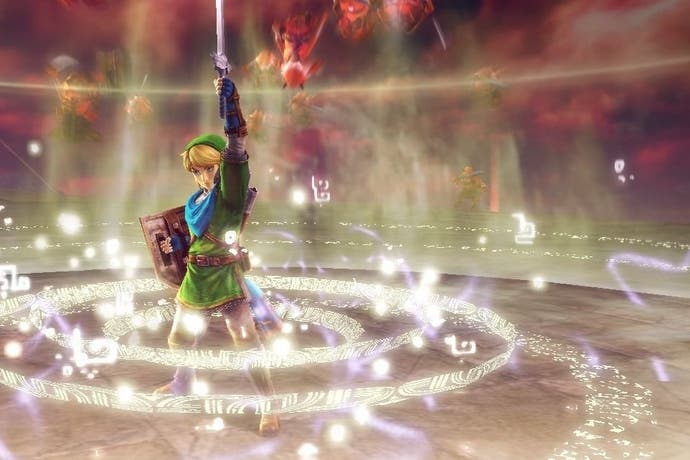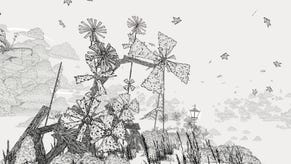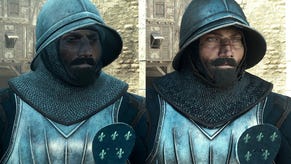Here's why you should care about Hyrule Warriors
As Nintendo's offshoot awaits, a genre expert on what makes Koei's Musou games great.
Koei's Musou series is 14 years old. That's older than GTA 3 and Call of Duty (even if you're so inclined to include Medal of Honor: Allied Assault), so at the very least it's a mark of endurance if not some fundamental, unique quality. Starting with a curiously educational setting in ancient China, the series has diversified by shifting its pseudo-historical locales to Japan and Europe. It's even spread into totally separate IP universes, adding manga/anime greats such as Gundam, Fist of the North Star and One Piece. As Nintendo joins in the melee for the upcoming Hyrule Warriors, it looks like the mega-series is about to enter a golden era of wider popular acceptance. What makes the Musou template so great that Nintendo was happy to offer up one its most cherished IPs to the altar of highly iterative en-masse brawling?
In 2014, the basic Musou framework is a well-oiled, well-tuned machine. It's wonderfully accessible and the basics are understood within a single stage, which is one of the series' real strengths. The longer tail of any Musou title is down to its freedom for replay - any completed stage can be replayed at will, with the same XP and pick-up rewards on offer every single time. You can adjust the difficulty (commonly with four settings, and four degrees of rewards), so the path of least resistance (plough through everything on easy, unlocking all the stuff) leads to a path of self-determination (complete everything on chaos by levelling your favourite to maximum).
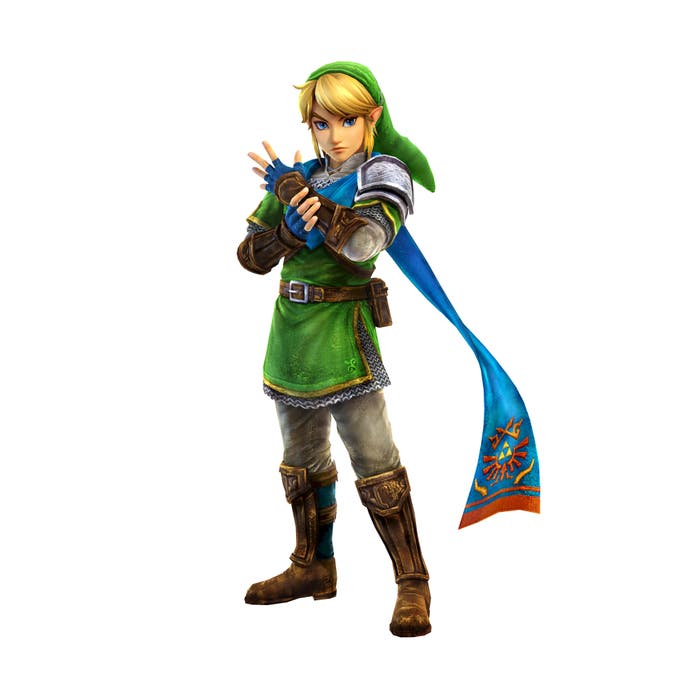
It's always worth persevering with the levelling grind as the reward of an unstoppable crowd-clearing character, able to dive into dense crowds of the hardest enemies without fear of death, is a rare treat in modern gaming. It's total, assured dominance; the perfect reward for hours and hours of work. The challenge shifts accordingly - it stops being about survival and starts being about optimal performance. How fast can you duff up the entire stage? How long can you string out a combo? How many officers (named enemies with larger health bars that drop rewards) can you crowd together, and can you land KO blows on all of them in one string?
It's easy to see this plateau as some weakness in the design - the general rule is that grind-oriented games get harder and harder, or grinding takes longer and longer, until you give up or triumph (and thus, the game ends). The Musou philosophy balks at this kind of adolescent machismo. It's happy to let you pick the steepness of your levelling curve, and take on the hardest challenges with anyone you've unlocked. In modern Musou titles, there can be hundreds and hundreds of hours of gameplay for completionists. Of course, it's the core gameplay that often offends, though if a series can survive for 14 years on the same basic fighting engine, it must be doing something right.
I often think the Musou titles are less about being a ludicrously badass warrior and more about tidying up the place. The big crowds make a terrible visual mess of the stage environments, and this kind of warfare is always ugly and dirty. But you are the god of cleanliness, and the your weapon is your Cillit Bang; a few strings, a dash of Musou special and the dirt is gone. There is something primal in the sense of clearance, and these games seem to home in on it. Few others offer the same sense of cleansing something, or re-ordering noisy chaos into tranquil order. It's more like the satisfaction you'd get from a puzzle game.
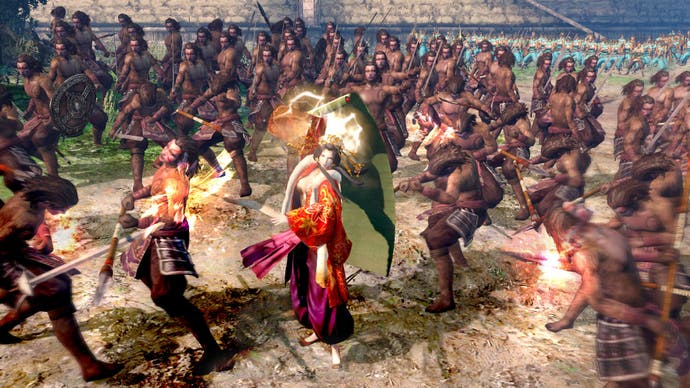
On top of this is a common trait of finding the best route through a stage. Generally speaking, your first bash will never be the most efficient or enjoyable. It obviously takes knowledge to know a stage's ebb and flow. You need to be in the right places at the right time, and there's a specific sequence to be found that'll drop the most loot and XP while providing the most fun crowds and officer conjunctions. Get to know them well enough, and you'll be hitting flashpoints with your specials fully-charged, able to bang out your best performances. Dynasty Warriors 8's stupendously overblown True Rage attacks can be set up perfectly for the arrival of a giant mob, to the point where some stages feel orchestrated just so this can happen if you're running the stage correctly. It's all far less of a chore than classic RPG grinding, and in the Warriors Orochi titles the ability to hot-swap between three characters means there's plenty of wily runs to be had with a high-level character serving as a bodyguard for two weaker ones on a power-levelling rampage. The Musou titles are full of these kinds of optimisations and maximisations. Working them out and refining your runs are what keeps the grinding fresh, not to mention the reward of getting characters up to par with full move-sets and the best weaponry.
This hook doesn't dig in for all players but when it does, it's uniquely great. Once you see the crowd densities for later stages on chaos difficulty, you'll see why fans put so much time in - there's an awful lot to clear up, and it's so satisfying to do it with finesse. This sense of pride in your work is a secret, unadvertised virtue in the Musou titles. It's not even explicitly rewarded; clearing a heavy stage really quickly doesn't give much, other than a record time and a faster grind cycle. However it's a key impetus to improve your game and grind with increasing efficiency.
For this, you need to know your characters' attack strings and know how to use them best. When you have it nailed, a Musou melee in full swing is all rhythm and instinct. The camera can be lost in the action but your brain has plotted it all out, and you're wading through like a pro, directing your character blindly but with expertise, mowing down all the baddies. It's here that the Musou titles find their unique zen, and you're wishing for six officers to turn up so you can dispatch them with ease while your combo count reaches the thousands.
When you have a suitably powered-up character and the stages to flex them in, it all becomes so sweet. Confidence makes it all so leisurely, and the series' steady improvement in visuals and sounds (and crunchy special effects such as slo-mo for certain KOs) makes it thoroughly entertaining. There's also something in the rhythm - Blat-blat-blat-blat-blat-BOOFF-BOOOF might not mean much to a non-fan, but if you like Zuo Ci, you'll know exactly how awesome that beat is.
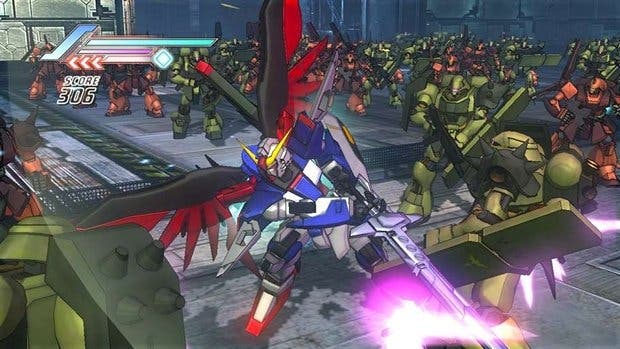
It's key to realise that the Musou combat system's complexity (or lack thereof) doesn't really matter. As much as I'd like a Musou title to take on Platinum's technical style of urgent fighting, the simplicity Koei's system flaunts is genuinely a strength. Knowing you're not going to fluff anything is nice, and you're soon aware exactly what your characters are capable of. As everyone fights the same way, you can quickly inspect new characters to see if they're fun and focus on your team of favourites.
Then there's the ornamentations that crop up on a per-title basis. Warriors Orochi lets you mix it up with mid-string character swap-outs, with some marvellously technical rampages to be had. Some titles have shoulder-button specials that can prime a character for violence (with buffs) or grant a new full-stop to end strings and combos. Others have companion characters that can finish off or soften up crowds while you focus on the officers. In any modern Musou title, there are always components you can piece together with your own flair for the speedy or dramatic (or hopefully both).
For the newcomer looking to see what the fuss is about, Hyrule Warriors is probably going to be classic Musou in a fantastic universe. If you're looking for a primer, it's worth picking up either Warriors Orochi 3 or Dynasty Warriors Gundam 3. They're the best-in-breed for my money, both being nicely matured and well-balanced, with buckets and buckets of characters and content. Orochi 3 is hardcore Musou at its most technical and rewarding, while Gundam 3 is the most versatile and arguably the most interesting visually, thanks to its cel-shaded style. Warriors Orochi 3 also has some truly spectacular grind pits in its DLC, to the extent where they turn into some mad Dance Dance Revolution hybrid on chaos difficulty. Really, it's about perseverance. The Musou titles have always been shy of advertising their greatest carrots, relying on prior knowledge or simple determination to spur you on. To really get the gist of one, you need to complete at least one storyline and get a character to the "I fear nothing" level. Then you might feel the magic of it all.
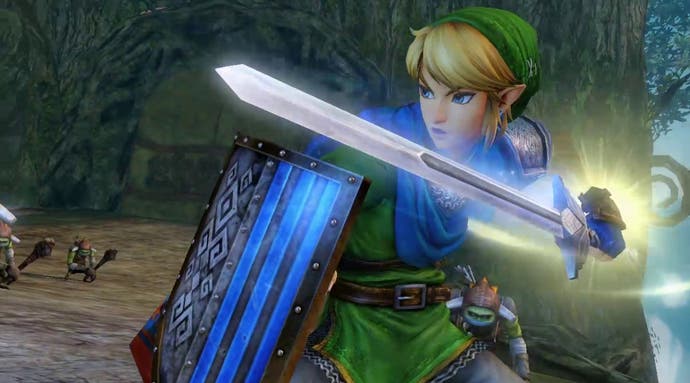
The Musou titles are more than a testament to longevity and grinding glory. They're also blessed with a quirky playful humour and a self-awareness that's nearly lost in translation. I can't think of any other game series that teaches history with so much violent fun. After a few Dynasty and Samurai Warriors titles, you'll know all the superstars of Chinese and Japanese legend (notably, this was reportedly an aim of Koei's founders, Yōichi and Keiko Erikawa). For the IP licensed titles, they become encyclopaedias for their respective universes, and great ways to gad about as beloved characters and mecha. Those tie-in games do beg the question of how other universes would fare as Musou games - wouldn't a Marvel/DC version be fun? The idea of a 2000AD Musou game makes me nearly faint, as does one with nothing but guns instead of melee weapons.
I can only hope that Hyrule Warriors is a new dawn of sorts, but I'm also fairly confident that Koei's stalwart will see itself through another generation of hardware. It's fended off competition from some surprising rivals; EA with its Lord of the Rings games and Capcom via the lesser-known Sengoku Basara series (not to mention Drakengard and the flawed but amazing Ninety-Nine Nights). The Musou games certainly seem to have the kind of loyal, fervent fanbase that keeps a game series going without critical acclaim or any serious retail commitment. Long may it continue.
